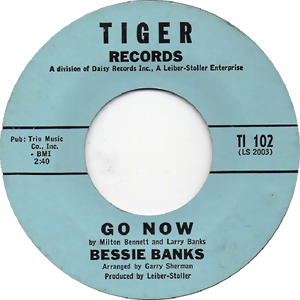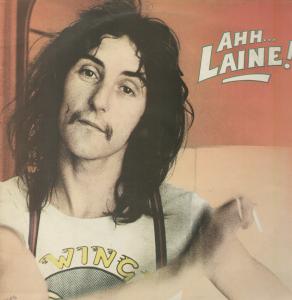
Nicholas Peter John Hornby is an English writer and lyricist. He is best known for his memoir Fever Pitch (1992) and novels High Fidelity and About a Boy, all of which were adapted into feature films. Hornby's work frequently touches upon music, sport, and the aimless and obsessive natures of his protagonists. His books have sold more than 5 million copies worldwide as of 2018. In a 2004 poll for the BBC, Hornby was named the 29th most influential person in British culture. He has received two Academy Award for Best Adapted Screenplay nominations for An Education (2009), and Brooklyn (2015).

Paul McCartney and Wings, often billed simply as Wings, were an English-American rock band formed in 1971 in London by former Beatles bassist and singer Paul McCartney, his wife Linda McCartney on keyboards, session drummer Denny Seiwell, and former Moody Blues guitarist Denny Laine. Wings were noted for their commercial successes, musical eclecticism and frequent personnel changes; going through three lead guitarists and four drummers. However, the core trio of the McCartneys and Laine remained intact throughout the group's existence.

Frankie Laine was an American singer and songwriter whose career spanned nearly 75 years, from his first concerts in 1930 with a marathon dance company to his final performance of "That's My Desire" in 2005. Often billed as "America's Number One Song Stylist", his other nicknames include "Mr. Rhythm", "Old Leather Lungs", and "Mr. Steel Tonsils". His hits included "That's My Desire", "That Lucky Old Sun", "Mule Train", "Jezebel", "High Noon", "I Believe", "Hey Joe!", "The Kid's Last Fight", "Cool Water", "Rawhide", and "You Gave Me a Mountain".
"In the Beginning" is a popular song, by Dorcas Cochran, Kay Twomey, Ben Weisman, and Fred Wise. The lyrics commence: "In the Beginning the Lord made the earth...".

"Fever" is a song written by Eddie Cooley and Otis Blackwell, who used the pseudonym "John Davenport". It was originally recorded by American R&B singer Little Willie John for his debut album, Fever (1956), and released as a single in April of the same year. The song topped the Billboard R&B Best Sellers in the US and peaked at number 24 on the Billboard pop chart. It was received positively by music critics and included on several lists of the best songs when it was released.

"Born to Raise Hell" is a song by the British rock band Motörhead. Originally written by Lemmy Kilmister for the German band Skew Siskin, it plays over the opening credits of the 1994 film Airheads in which Lemmy makes a cameo appearance.

Brian Frederick Hines, known professionally as Denny Laine, was an English musician who co-founded two major rock bands: the Moody Blues and Wings. Laine played guitar in the Moody Blues from 1964 to 1966, and he sang their hit cover version of "Go Now". While the Moody Blues were on tour with the Beatles in 1965, Laine befriended Paul McCartney, who later asked him to join his band Wings.
"Somebody Put Something in My Drink" is a song by the Ramones from their 1986 album Animal Boy. The song also appears on the Ramones compilation album Ramones Mania. Written by Ramones drummer Richie Ramone, who had joined the band in 1983, "Somebody Put Something in My Drink" was based on an actual incident in which he was given a drink spiked with LSD.

A Fever You Can't Sweat Out is the debut studio album by American pop rock band Panic! at the Disco. Produced by Matt Squire, the album was released on September 27, 2005, through Decaydance and Fueled by Ramen. The group formed in Las Vegas in 2004 and began posting demos online, which caught the attention of Fall Out Boy bassist Pete Wentz. Wentz signed the group to his own imprint label, Decaydance, without them having ever performed live. It is the only album released during original bassist Brent Wilson's time in the band, but the exact nature of his involvement in the writing and recording process became a source of contention upon his dismissal from the group in mid-2006.

"Tiger Rag" is a jazz standard that was recorded and copyrighted by the Original Dixieland Jass Band in 1917. It is one of the most recorded jazz compositions. In 2003, the 1918 recording of "Tiger Rag" was entered into the U.S. Library of Congress National Recording Registry.

Bring Your Smile Along is a 1955 American Technicolor comedy film by Blake Edwards. It was Edwards' directorial debut and the motion picture debut of Constance Towers. Edwards wrote the script for this Frankie Laine musical with his mentor, director Richard Quine. Songs Laine sang in the film included his 1951 hit "The Gandy Dancers' Ball."

Belle of the Nineties is a 1934 American Western film directed by Leo McCarey and released by Paramount Pictures. Mae West's fourth motion picture, it was based on her original story It Ain't No Sin, which was also to be the film's title until censors objected. Johnny Mack Brown, Duke Ellington, and Katherine DeMille are also in the cast. The film is noted for being the premiere performance of the jazz standard "My Old Flame", performed by West with the Duke Ellington Orchestra.

"Go Now" is a song composed by Larry Banks and Milton Bennett and first recorded by Bessie Banks, released as a single in January 1964. The best-known version was recorded by the Moody Blues and released the same year.

Ahh...Laine! is the first solo album by Wings guitarist Denny Laine, released in 1973.
"Ain't Misbehavin'" is a 1929 stride jazz/early swing song. Andy Razaf wrote the lyrics to a score by Thomas "Fats" Waller and Harry Brooks for the Broadway musical comedy play Connie's Hot Chocolates.

Trevor Burton is an English guitarist and is a founding member of The Move.

"The Fever" is a song written and recorded by Bruce Springsteen in 1973. The song would not see formal release until the 1999 compilation 18 Tracks.

Michael Thomas Pinder was an English rock musician. He was a founding member and the original keyboard player of the rock group the Moody Blues. He left the group following the recording of the band's ninth album Octave in 1978. Pinder was renowned for his technological contributions to rock music, most notably in the development and emergence of the Mellotron in 1960s rock music. In 2018, he was inducted into the Rock and Roll Hall of Fame as a member of the Moody Blues. He was the last surviving member of the group's original lineup.
The Ponysitters Club is a Canadian children's television series that debuted on Netflix on August 10, 2018. The drama follows a group of kids who seek to protect and raise horses and ponies on a ranch dedicated to rescuing abused animals. The show is based on the book by Victoria Carson, and stars Morgan Neundorf, Cailan Laine, Madeline Leon, and Hugh Wilson.

John Vincent Orlando is a Canadian singer-songwriter and actor. Orlando first received attention on social media by posting covers of pop songs by artists such as Austin Mahone, Taylor Swift, Rihanna, Justin Bieber, and Shawn Mendes to his YouTube channel. In 2019, Orlando was nominated for the Juno Award for Breakthrough Artist of the Year. He has also won an MTV Europe Music Award for Best Canadian Act four times in 2019, 2020, 2021, and 2022.















